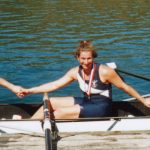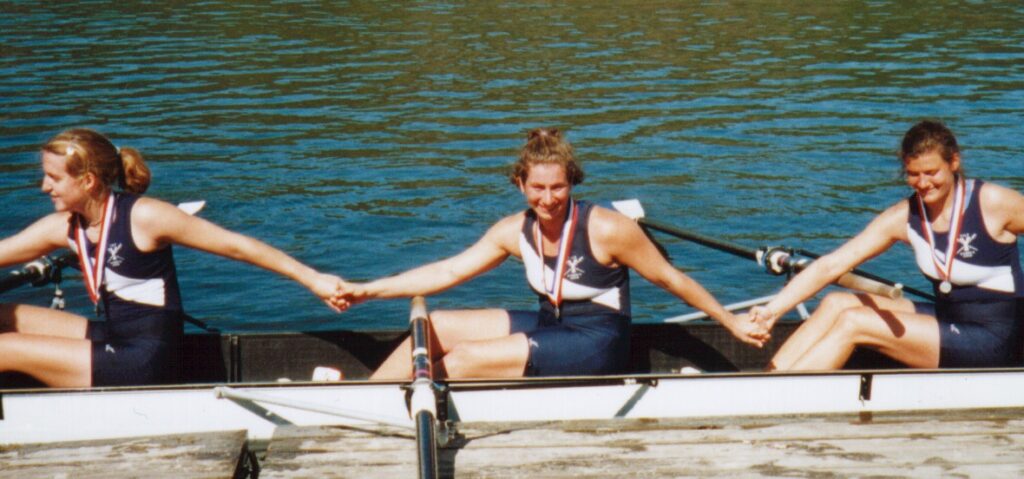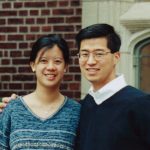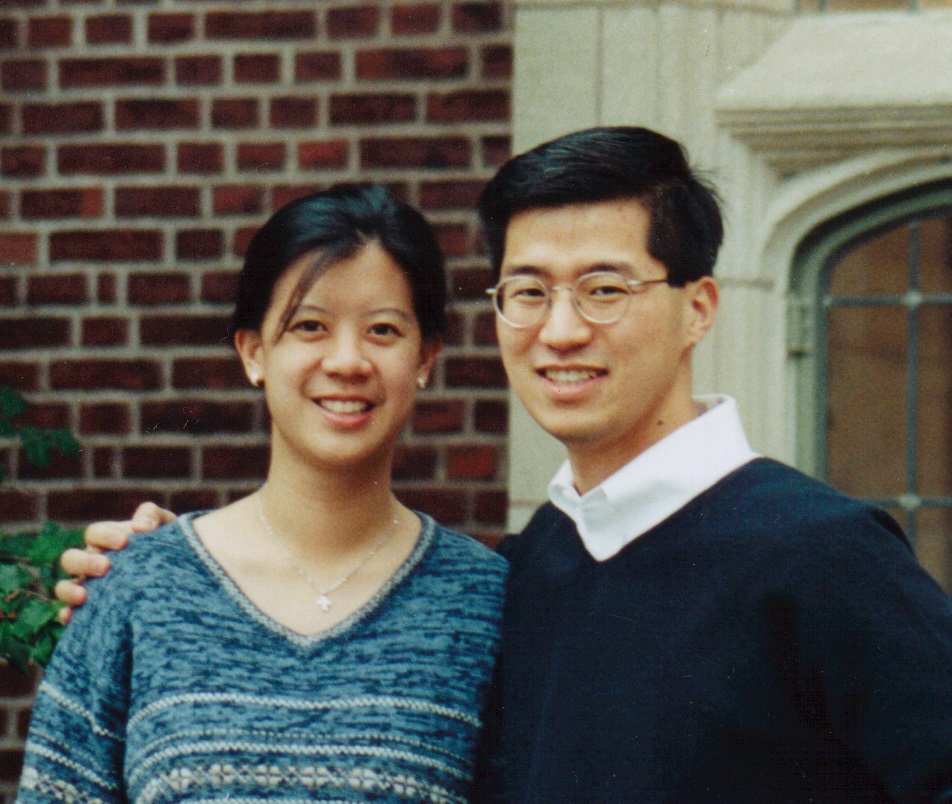Yale In Missions:
Ambition To Serve God
As Yale students, we find ourselves near the top nationwide in education, ambition, and position for the future. Parents, peers, society, and we ourselves expect us to use our advantages to become successful, to make something of ourselves—to be the leaders of tomorrow. Aren’t these the reasons that brought us to Yale?
Sang and Charmain Yun
For centuries, many Yale students prepared for a very different future. Many of our alumni have made serving God their career.
Yale In Missions: Ambition To Serve God
As Yale students, we find ourselves near the top nationwide in education, ambition, and position for the future. Parents, peers, society, and we ourselves expect us to use our advantages to become successful, to make something of ourselves—to be the leaders of tomorrow. Aren’t these the reasons that brought us to Yale?
For centuries, many Yale students prepared for a very different future. Many of our alumni have made serving God their career. As early as the 1730’s, Yale alumni were involved in missionary work among Native Americans, with John Sergeant (1729) leading the way, followed closely by Jonathan Edwards (1720). The first graduate to go to the foreign mission field was Benjamin C. Meigs (1809), who worked in Ceylon (modern Sri Lanka). Tracy Pitkin (1892) took up service in China. His martyrdom in the Boxer Rebellion inspired the Class of 1899 to start the mission that later became the Yale in China program. Millionaire Bill Borden (1909) gave his entire fortune to missionary efforts and died at the age of 25 in Egypt, preparing to serve in China. Henry B. Wright (1898) stayed on as a faculty member at Yale to prepare students for just such endeavors.
Did ambition to serve God die with these individuals? Unknown to many students, this dream and legacy is very much alive, despite the vastly different spiritual climate of modern-day Yale. While many grad-uates go on to further degrees, or to Wall Street to pursue careers, or to the Peace Corps to offer their humanitarian efforts, a growing num-ber of students are realizing that following the Lord’s call on their lives is the highest use of their Yale degree.
After graduation, Elizabeth Ferguson (BR ‘98) decided she wanted to pursue a career training for the Olympic rowing events. “My experience on the Yale Women’s Crew made me fall in love with the high demand and level of competition at the upper echelon of the rowing community. I loved the satisfaction of seeing my hard work make me faster.” Elizabeth was on the team that qualified and finished fifth at the inaugural NCAA National Women’s Rowing Championships in 1997, where Yale proved its rowing program to be among the country’s best.
But no level of competition could satisfy her because of a competing desire to follow the examples of Yalies like Bill Borden and Tracy Pitkin. “They gave their lives with reckless abandon to carry out what they believed that Jesus wanted them to do. What they did required everything they had and everything they were. It speaks volumes about the might of the God they were serving that He should be worthy of such a commitment.”
“When I was spending 25-30 hours a week training, I tried to give my full commitment to rowing, but the glory of Olympic Gold finally couldn’t compare to this God who required all of me. In the midst of training, I felt divided in my ambition and in my goals. One had to give way to the other, and I realized that giving my life completely to the Lord’s service was the much better of the two.”

“The Glory of the Olympic Gold finally couldn’t compare to this God who required all of me.”

So this determined young athlete retired her oars. “Actually, I gave them away just so I wouldn’t be haunted by the dream they represented, so I would be free to follow Jesus with all my heart.”
So where is she now? “I am in a different kind of training now. I realized that the kind of sacrifice and commitment that Borden and Pitkin made were REALLY hard. Just as it takes years of preparation to learn enough about rowing to be ready to enter Olympic competition, so it takes time to prepare for the challenges of the mission field, and that’s my focus now. I’m learning about the challenges from other people who have gone before me. I’m learning as much as I can about the God who is worthy to ask so much of me. I feel I have a good foundation, but there’s always more to understand.”
There are still external expectations and pressure. “My mother has repeatedly asked me not to ‘waste my Yale education.’ I understand now that by going to the mission field, I am not wasting my Yale degree but fulfilling it.” Elizabeth plans to visit Colombia, South America, this summer and is thinking about returning later to stay long-term.
Only twenty years ago, Robert Francis (PC ’80) was in the Whiffenpoofs his senior year when he and a group of three other men quit to form a new a cappella group called “Living Water,” devoted only to singing about Jesus. What kind of life decisions has that led him to make? “Five months after [accepting Jesus], it was Rev. Peter Rogers (of St. John’s Episcopal Church) who suggested that I consider a career or calling in the ministry. I literally laughed at the prospect.” His parents had groomed him for many years to be a businessman, but he admits he did not have much direction. “I grew up in the altruistic 60’s. The desire to be rich was not a lure for me. I wanted something to live for, but saw little that attracted me.”
So he found himself at a missions conference in Urbana, Illinois, with 20,000 other delegates, listening to Billy Graham. He recalls, “[Mr. Graham] exhorted us to give our future to God. The issue was not ministry versus secular work; the issue was giving up control and letting God direct us whichever way He wishes. That prospect was truly frightening that night.” He found himself “terrified to leave the path expected of [me]” even though he wanted to fulfill God’s purpose for his life. “I wrestled for months with the decision to take the next step. One night a family friend told me of her contemporaries who have regrets because they didn’t follow the dreams they had as youth. [She] helped me step out in boldness to obey Jesus.”
Mr. Francis has served twenty years with Youth With A Mission (YWAM) in Singapore and other locations in Asia. The biggest obstacle he had to overcome to reach a decision? “One thing I could not see while at Yale was how deeply the expectations of my peers, family, and culture made an imprint on my self-worth. It is relatively easy to say, “I want to live for God’s glory and purposes”; it is difficult to live that way. Anyone who tries to practice Christ’s priorities in his career will quickly learn that the measurements of success and signs of approval flow counter to the gospel. God will likely allow such a person to pass through a time of obscurity and worldly insignificance on his pathway to a tested, approved, anointed ministry. As an overachieving Yalie, I can tell you this has been one of the hardest experiences of my life. Nonetheless, I am deeply thankful and glad I decided to choose this path.”
At a place like Yale, students are tempted to think that God will bless them by letting them amount to something. Rob’s perspective about his life is: “I’ve never owned a home. I have no property in the US. I don’t own a car at present. I am famous nowhere. Perhaps by others’ standards I have lost something by stepping into missions. In my own heart, I don’t feel that way. Nothing can compare to knowing the experience of God’s Spirit using you to touch others. I am doing today what I never dreamt of twenty years ago.”
What about Rob’s parents, who expected him to be a successful businessman? “[My choice] came as a shock to them. My father was less angry than heartbroken. He had very little respect for the clergy, [but] his response was ‘You mustn’t live your life to please me…’ Pretty cool huh?”
A self-admitted overachiever while at Yale, he realized that living a life without regrets implied the unusual tactic of letting go of those things he thought he valued most. He counsels, “Listen to God’s voice over your own intellect—Yalies are probably more crippled than served by their intellects…. It is true, if we yield our rights and walk in obedience to Christ, God will give us privilege with Him. Yielding rights is painful and difficult. There is no easy path to following Jesus. The cross is an instrument of death. Following Him means choosing to die. Die to your right to ‘career’ and come follow Jesus. Allow Him to do something with your life that would only boggle your imagination if I could show it to you. But do it because you want to please Him and walk in thankfulness for all He has done for you.”
Following Jesus doesn’t mean the same thing for everyone. For some, it has not meant leaving the country. In recent years, a sizeable number of students have realized that God wants to use their Yale degrees on college campuses. Charmain (Wong) Yun (BR ’95) was planning a career in law that has been put on hold indefinitely as she and her husband, Sang Yun (ES ’93), oversee the undergraduate organization, Yale Students for Christ. The reason for her decision? “The clincher was when I read about how Jesus—though He was God—gave it up to become man to die for us. (Philippians 2) He didn’t consider equality with God something to be grasped. But, he let go. I realized that if He let go, the only thing I can do in response is to let go of my own ambitions, identity, and ideas of prosperity. And I have found that once we let go, God always has something better for us.”

Yielding rights is painful and difficult. There is no easy path to following Jesus.
Sang and Charmain Yun, directors of Yale Students for Christ.

Dan Voll (JE ’74) considered the calling of Jesus so much greater than his Yale degree that after twenty-five years of serving in Colombia, South America, he has never completed it. “On December 24, 1974, I was on my way to LaGuardia with a 90-day tourist visa for Colombia. I got off the plane at El Dorado Airport in Bogotá, and was greeted by a minister receiving some two dozen other youngsters from Texas who were coming for a two-week missions trip. Little did I know that I [would] stay for longer than two weeks, longer than 90 days. Twenty-five years after having arrived in Colombia, I continue to teach English, work with the Jewish community, and give talks and workshops in many of the bilingual schools.”
“The important thing to keep in mind is that it’s not about going overseas or being in the ‘right’ ministry. It’s about letting go of your priorities and letting Jesus have His way in your life,” Charmain reminds us. I think that has certainly been in the minds of these and other Yale alumni who have considered their Yale degree not something to live for, but to be given to God, that He might have control of their lives.
